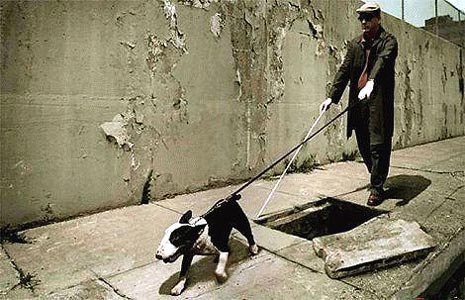Young people, by and large, do not see things that way. They have grown up in a world of change, shifting values, media energy and consumerism. Individualism is their starting point and they have developed a suspicion of easy answers to life's questions. The packaged answers of the major religions are, for many young people, just another commodity on the shelves of the supermarket of meaning: something to browse, try on and discard. They may see religion as a quaint and interesting investment but often discard it because it is seen as something that might also smother their personal spirituality with a bland and impersonal uniformity.
That is not the whole picture however because in the end everyone tires of shopping around. That may emerge as an acceptance of simplistic answers that leave young people vulnerable to fundamentalism in its many forms. Some may just give up and abandon the search for meaning entirely. They become vulnerable to the grave consequences of drifting into compensatory activity in drugs, alcohol, casual sex and in so doing, inviting the darker side of their lives to rob them of well being. In religious language that amounts to losing one's soul.
As a religious-minded parent or teacher I may be deeply concerned about such issues but that concern will not be shared by many young people. They do not see with the same eyes, with the same perspective as older adults. Where we see threat they may see adventure. Where we see naivety they see idealism. Where we see safety they see suffocation. We do not see what they are seeing we may be blinded by our care and by our cultural roots to the emerging world and the real risks young people face.

That is why the only way forward is to walk with young people as fellow travellers into an unknown future. We need to give them a good listening to rather than a good talking to. What they seem to carry is a new set of priorities, a fluidity, and an openness to which we as older adults may be blind. What we have to carry is the religious tradition re-shaped according to a new set of priorities for a new century.
So here is a question to end this blog. If religion is made up of the seven elements below where should our emphasis be if we are to support young adults in their search for meaning?
How would you prioritise this list? Good luck!
- Ritual: Forms and orders of ceremonies
- Narrative and Mythic: stories that work on several levels.
- Experiential and emotional: dread, awe, mystery, devotion, ecstasy, peace, bliss
- Social and Institutional: belief system is shared and attitudes practised by a group.
- Ethical and legal: Rules about human behavior
- Doctrinal and philosophical: systematic formulation of teachings in an intellectual form
- Material aesthetic: ordinary objects or places that symbolize or manifest the sacred
Source- Ninian Smart

